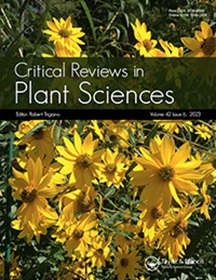新旧育种技术背景下的遗传变异和意外风险
IF 6
2区 生物学
Q1 PLANT SCIENCES
引用次数: 8
摘要
几千年来,人类一直在改良农作物以更好地满足他们的需要。这些增强是由植物基因组成的变化驱动的。虽然这最初是无意的,但随着人们对遗传学的理解不断加深,以及在分子水平上彻底评估基因组的能力不断提高,人们一直在稳步推动作物育种的步伐和精度。在过去的几十年里,随着分子育种技术(如转基因和基因组编辑)的出现和迅速普及,人们对基因座上意想不到的突变产生脱靶效应的可能性以及由此可能带来的意想不到的风险感到非常担忧。尽管越来越多的研究表明,与许多传统育种方法所观察到的脱靶突变相比,来自较新的生物技术育种技术的脱靶突变的发生可以忽略不计,甚至自发地从一代传到下一代,但这些担忧仍然存在。鉴于我们在短期内面临的迫在眉睫的粮食安全危机,迫切需要实施广泛的育种工具,以满足日益增长的需求,承受与气候变化有关的压力,增加营养,并提供环境效益。虽然食品安全显然是最重要的,但现在当然不是基于毫无根据的怀疑来阻止使用特定育种技术的时候。因此,在这篇综述中,我们试图通过将自发突变的频率与通过各种传统和生物技术育种方法(包括转基因和基因组编辑)发生的(包括预期和未预期的)突变的频率进行比较,将所谓的“风险”置于植物育种的整体背景下,从而阐明这些担忧。然后,我们考虑这些变化可能或可能不会转化为意想不到的风险,并讨论当前围绕基因组编辑作物的全球监管不同步。本文章由计算机程序翻译,如有差异,请以英文原文为准。
Genetic Variation and Unintended Risk in the Context of Old and New Breeding Techniques
Abstract For thousands of years, humans have been improving crops to better suit their needs. These enhancements are driven by changes in the genetic makeup of the plant. While this was initially unintentional, there has been a steady push to increase the pace and precision of crop breeding, something that has occurred alongside a growing understanding of genetics and an escalating capacity to thoroughly assess genomes at the molecular level. With the advent and rapid uptake of molecular breeding techniques, such as transgenics and genome editing over the past few decades, there has been much trepidation regarding the possibility of off-target effects derived from unanticipated mutations at loci other than those intended for alteration, and the unintended risks that this might confer. These concerns persist regardless of the fact that a growing number of studies indicate that the occurrence of off-target mutations derived from newer biotechnological breeding techniques are negligible compared to what is observed with many conventional breeding approaches, and even spontaneously from one generation to the next. Given the impending food security crisis that we are facing in the short-term, there is a critical need to implement a wide range of breeding tools as a means of meeting growing demand, withstanding climate change-related pressures, increasing nutrition, and providing environmental benefits. While food safety is clearly of the utmost importance, now is certainly not the time to prevent the use of particular breeding technologies based on unfounded doubts. Therefore, in this review, we attempt to shed light on these apprehensions by putting purported “risks” into the context of plant breeding as a whole by comparing frequencies of spontaneous mutations with those (both anticipated and unanticipated) that occur through various conventional and biotechnological breeding approaches, including transgenics and genome editing. We then consider how these changes may, or may not, translate into unanticipated risk, and discuss the current global regulatory asynchrony surrounding genome edited crops.
求助全文
通过发布文献求助,成功后即可免费获取论文全文。
去求助
来源期刊
CiteScore
12.90
自引率
1.40%
发文量
15
审稿时长
>12 weeks
期刊介绍:
Critical Reviews in Plant Sciences focuses on presenting in-depth and up-to-date reviews of timely and/or cutting-edge subjects in the broad discipline of plant science, ranging from molecular biology/biochemistry through the areas of cell biology, plant pathology and physiology, genetics, classical botany, and ecology, to practical agricultural applications. Articles in the journal provide an up-to-date literature base for researchers and students, pointing the way towards future research needs. The journal is also a significant source of credible, objective information to aid decision makers at all levels.

 求助内容:
求助内容: 应助结果提醒方式:
应助结果提醒方式:


